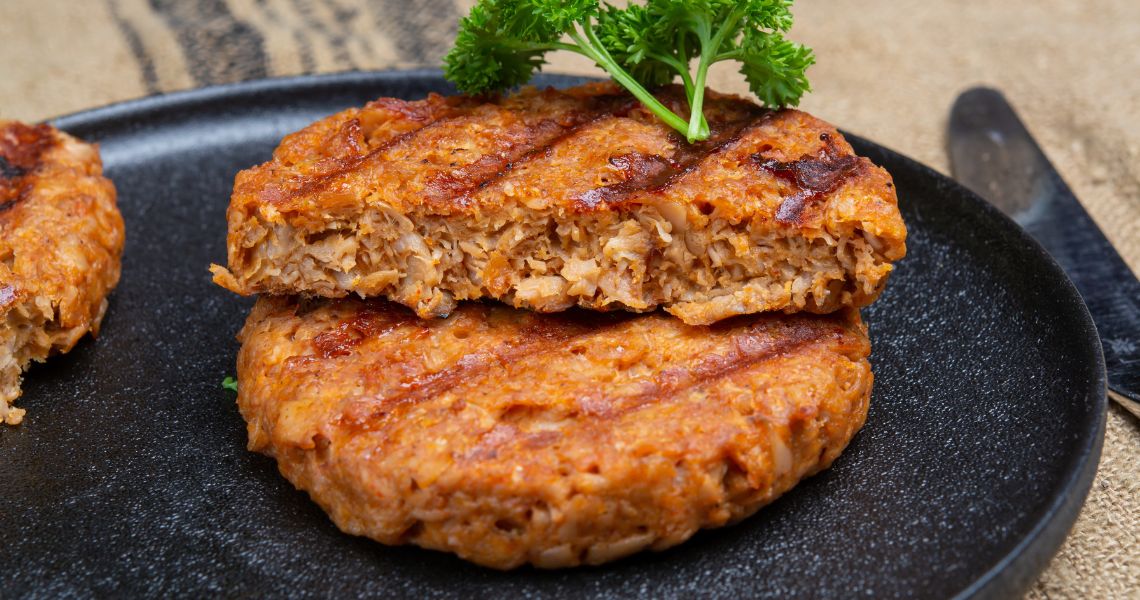How to substitute meat in your vegetarian diet
Find out how to substitute meat in your vegetarian diet with healthy and delicious options. Learn everything you need to know to improve your health.

Reducing or eliminating meat from our everyday diet is a growing trend linked to health, sustainability and animal welfare. Adopting a well-planned vegetarian diet can offer numerous benefits without compromising on flavour or nutrients. Below, we explore how to do it in a healthy and delicious way.
Benefits of a vegetarian diet
Opting for vegetarian food can have positive health effects. Those who follow a plant-based diet usually consume fewer calories and saturated fats, which is linked to a lower risk of cardiac diseases, high blood pressure and type 2 diabetes. Plus, these diets are usually rich in fibre, vitamins and antioxidants, essential for the body to be able to work properly.
Plant-based alternatives to meat: healthier options
There are various plant-based alternatives that mimic the texture and flavour of meat, enabling you to maintain a varied and tasty diet:
- Tofu. Made from soya, it’s versatile and can absorb the flavours of the ingredients it is cooked with. It’s ideal for stir fries, soups and grilled dishes.
- Tempeh. Also derived from soy, it’s firmer than tofu and has a nutty flavour. Rich in proteins and fibre, it’s perfect for tacos, salads and sandwiches.
- Seitan. Known as “vegetable meat”, it's a food product made from wheat gluten. It has a similar texture to meat and is excellent for stews, casseroles and grilled dishes.
- Jackfruit. This tropical fruit has a stringy texture like shredded meat, particularly useful in dishes like tacos.
- Processed vegan products. Although they are practical, they should be consumed in moderation, since some may contain high levels of additives.

Plant proteins: how to obtain them without meat
Plant proteins are essential for a balanced diet. Fortunately, there are multiple plant sources that are rich in proteins:
- Pulses. Chickpeas, lentils, kidney beans and lupin beans are excellent sources of proteins and fibre. Added to salads, stews or as a base for vegetable burgers, they are a delicious choice.
- Nuts and seeds. Almonds, walnuts, pistachios, chia seeds and pumpkin seeds provide proteins, healthy fats and minerals. They are ideal as a snack or added to yoghurts and salads.
- Wholegrain cereals. Quinoa, oats and wholegrain rice not only provide complex carbohydrates, but also proteins. Quinoa, for example, is a complete protein that contains essential amino acids.
- Vegetables. Some vegetables like mushrooms, spinach and broccoli also provide large amounts of proteins.
It’s important to combine these foods to ensure an adequate intake of all the essential amino acids.
Easy recipes to substitute meat in your diet
Incorporating plant-based alternatives in everyday meals can be simple and tasty. Here are some ideas:
- Tempeh tacos. Sauté shredded tempeh with onion, peppers and Mexican spices, and serve in corn tortillas with guacamole.
- Lentil burgers. Grind cooked lentils with oats, grated carrot and spices to make delicious and nutritious burgers.
- Tofu and vegetable stir fry. Marinate the tofu in soy sauce, ginger and garlic, and mix with broccoli, carrots and peppers.
- Chickpea and spinach soup. Cook the chickpeas with onion, garlic, tomato and vegetable stock, and add fresh spices at the end.
- Quinoa and avocado salad. Mix cooked quinoa with avocado, tomato, cucumber and a lemon and olive oil dressing.
Adopting a vegetarian diet can be an enriching experience for the palate and beneficial for our health. With suitable alternatives and careful planning, it's possible to enjoy a balanced diet which is both tasty and environmentally friendly.
What do you think about?
Share comments, opinions and tricks with the Community








